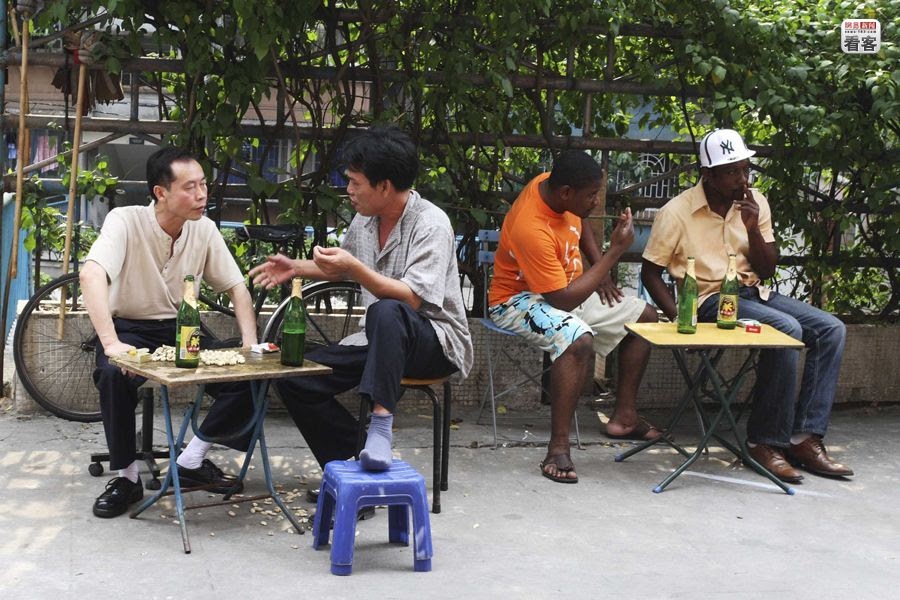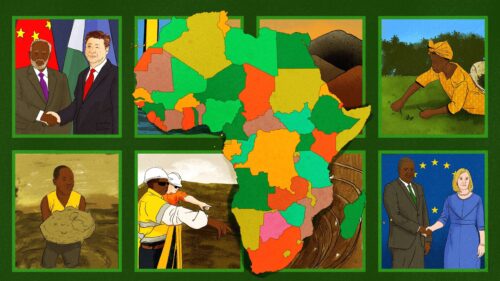Africans in Guangzhou face special scrutiny amid coronavirus-fueled xenophobia
Africans in Guangzhou face special scrutiny amid coronavirus-fueled xenophobia

So far in Guangzhou’s Yuexiu District, there have been just 16 confirmed cases of foreigners from African countries with COVID-19. But for the black community there, what’s more terrifying than the virus itself is the rising tide of discrimination driven by both coronavirus-fueled xenophobia and deep-rooted prejudice against black people in China.
On April 6, Sanheli, a neighborhood in Yuexiu that is known as “Little Africa” due to its sizable population of African migrants, became the subject of a social media frenzy after a since-deleted Weibo post claiming that Yaotai village, located in the neighborhood, would be completely locked down for 14 days. “Some specific groups of people will be targeted for testing during this period of time,” the post read.
Officials have denied that any such lockdown is in place. The post was written by a random Weibo user who didn’t mention the source of his information, but it sparked rumors that there had been a resurgence of COVID-19 driven by outsiders.
As speculation ran rampant, Weibo users began to suggest that the local African community was to blame for Yaotai’s rumored lockdown. Some of them pointed out that the measure came on the heels of an ugly incident in Guangzhou last week, when a Nigerian man who had contracted COVID-19 allegedly attacked a nurse while trying to flee a hospital.
“It seems that the incident has caused more damage than all the locally transmitted cases that China had to deal with in the past two months,” Weibo user @不吃猫的鱼 wrote in a post, which included a photo showing a street in Sanheli blocked by barricades.
The Weibo user’s complaint struck a chord with a vast number of Weibo users. As of Tuesday evening, a day after it was posted, the message had received about 23,000 comments and more than 547,000 likes. Meanwhile, as similar complaints piled up, people on Weibo started to coalesce around the hashtag #广州三元里 (#GuangzhouSanyuanli) to spout racist, bigoted, and hateful rhetoric about Africans in Guangzhou.
In a typical Weibo comment, one wrote (in Chinese): “The black people in Guangzhou constitute a serious problem for the city. They are lazy and unhygienic. Many of them are drug addicts or thieves because they don’t have much in their savings. I wouldn’t be surprised if a second outbreak occurred in Guangzhou.”
Meanwhile, the information office of Guangzhou’s government said (in Chinese) in a press conference yesterday that since five Nigerian migrants tested positive for COVID-19 this week, the city had launched a “comprehensive investigation” of potential coronavirus transmission in the expatriate community. “Put frankly there is increasing fear and worry in the region about a second wave of cases,” Maximus Ogbonna, president of the Nigerian community in China, told the China-based website Black Livity. “Because many associate this with foreigners, they are testing to make sure they are clear.”
But the local government has also sought to quell the eruption of irrational fears over the African community in the city.
As of April 7, more than 32,000 people traveling from overseas had been put under home quarantine or sent to designated facilities for 14-day isolation. Those holding foreign passports constituted about 6,300 of those people. “The pandemic in Guangzhou is under control,” a government official said. “There’s no need to panic about the situation as long as you properly implement protective measures.”
The spokesperson also tried to strike down rumors of a Yaotai lockdown, saying that vehicles and residents were free to enter and leave the village as long as they have valid health codes issued by local health authorities. In denial of speculation that there were about 300,000 African migrants in Yuexiu, the spokesperson said that the district was home to roughly 3,500 foreigners, and that most of the foreign residents there were from the U.S., followed by Mali, Nigeria, Canada, and Australia.
When it comes to imported coronavirus infections, a health official at the meeting noted that of the 111 imported cases discovered in Guangzhou, 86 were Chinese citizens flying back from overseas. Among the rest, 16 were from African countries such as Nigeria and Congo.
But for the many who called for all African migrants in Guangzhou to be deported, the official explanations weren’t enough. “This is not just about their health risks in the time of coronavirus. They need to leave the country for good!” a Weibo user commented.
The expatriate community has been increasingly targeted on the Chinese internet as of late, but Africans in Guangzhou face casual racism on a regular basis. Last month, when China’s Ministry of Justice unveiled a new set of regulations designed to loosen residency restrictions for some foreigners, it was met with fierce opposition underpinned by a groundswell of bigotry and racial stereotyping about black people. And in 2018, several hotels in Guangzhou were found to turn away guests from African countries for no particular reason.






